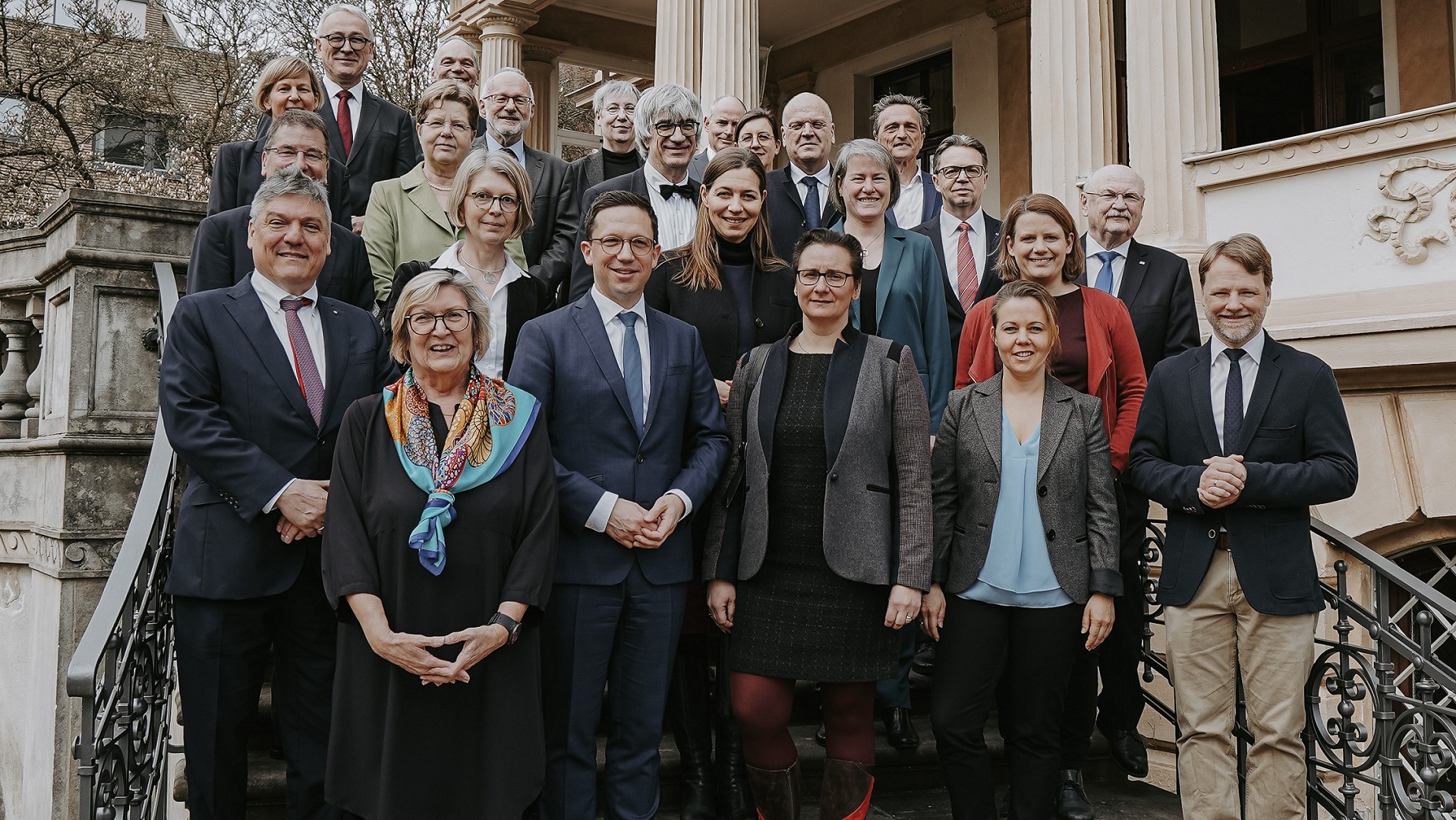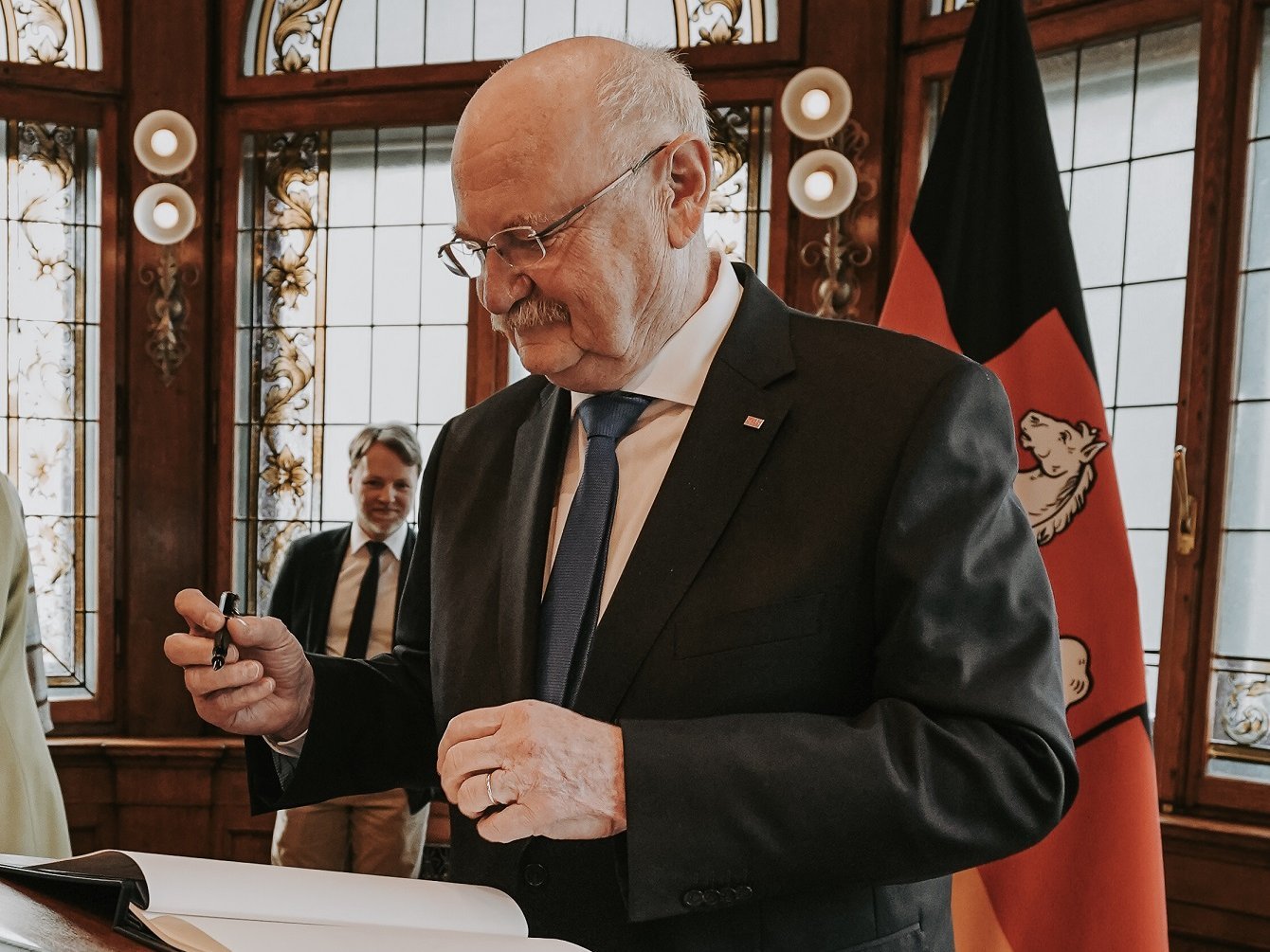More autonomy and planning security for state universities until the end of the decade.

State and universities sign university development agreement. Copyright: MWK / Behnush Martinez

Pleased with the new university development contract: MHH President. Prof Dr Michael Manns. Copyright: MWK / Behnush Martinez
The state of Lower Saxony is setting the course for the future of its universities with the new university development agreement. Under the leadership of the Ministry of Science and Culture, the state guarantees the 20 signatory state universities financial planning security until the end of 2029 and strengthens their autonomy in important areas. The agreement replaces the agreement from 2013, which has since been updated twice.
"The new higher education development agreement provides the universities in Lower Saxony with a reliable framework for the coming years in key areas. We are very pleased about this," says MHH President Prof Dr Michael Manns.
The agreement regulates the securing of specialist staff development, the promotion of research and transfer through to the improvement of university organisation and financial development.
It was agreed that the costs of future wage and salary increases would be covered during the term of the agreement up to and including 2029. The stabilisation of basic funding, i.e. the constant compensation of salaries, energy costs and material resources, for example, guarantees reliable framework conditions. The agreement also addresses current social changes and challenges such as demographic and technological developments and climate change. For example, the state is providing funding for the energy-efficient refurbishment of university buildings.
In future, universities will be able to develop their courses more easily under their own responsibility and establish new degree programmes such as sustainable product design or artificial intelligence. Universities will also be given more freedom when it comes to appointing professors. This will streamline decision-making processes and increase the attractiveness of universities.
Text: Simone Corpus